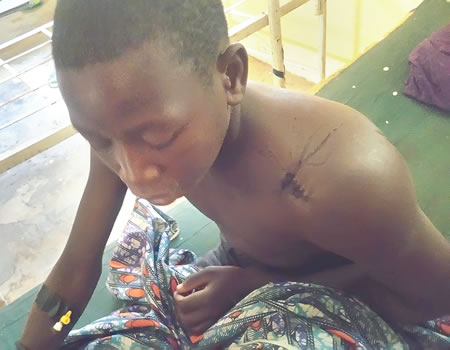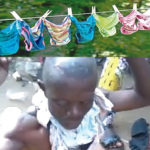FOR almost 10 years, banditry has been the biggest socio-economic issue in the North-West part of the country, starting with cattle rustling which many thought was not an unusual problem. For several years it was treated with kid’s gloves until recently when the assessed damage showed that it had already assumed the dimension of crises created by the Boko Haram menace in the North-East.
Today, hundreds of people displaced by the armed rustlers and other elements using the crisis as cover to launch attacks on communities in the region now live in make-shift camps and schools with no hope on when they would return to their original homes. Many have lost their means of livelihood just as many women were raped and others subjected to unimaginable psychological trauma.
In Zamfara State which is the epicenter of banditry, the reality is that mostly affected local governments like Maru, Maradun, Zurmi, Shinkafi, Gusau, and Ankaare now deserted and virtually all other local governments, with the exception of Gummi, had recorded several deadly attacks by the bandits.
Frantic efforts had been made by both the Federal and Zamfara state governments to arrest the ugly trend since 2011. But the situation had defied solutions until few months ago,when the Federal Government sent 2000 more soldiers to the state. This renewed effort seemed, to some extent, to have stemmed the problem.
Operation Sharan Daji, military operation set up to counter the problem, according to the acting director, Defence Information, Brigadier-General John Agim, was to combat armed banditry, kidnapping and cattle rustling, in order to restore peace and security in the state, to enable IDPs return to their villages.
According to him, with the support of the state government, citizens, community leaders and local vigilante groups, the bandits had been largely routed with most of their camps and hideouts destroyed.
Ransom for protection
According to an Aljimma village resident, Adamu Abdullahi, who spoke with Sunday Tribune, villages often pay ransom placed on them to avoid being attacked by the bandits. He said the bandits once placed a ransom of N20m on five villages.
“They normally send a representative to our communities asking us to pay certain amount of money running into millions as precondition for living in peace. It has happened to our village and other neighbouring communities.
“Let me give you the breakdown of villages and the ransoms paid. They placed N10 million ransom on Gora community; N5m on Faru village; N1.5m on Gidan Isah community; the people of Ilankwai village had to pay N2m; Gidan Baushe N2.5m. All the money was paid, even though I’m not sure whether people in Gorawere able to meet the demand or not.
“Apart from Gora all the other communities paid the money. I was part of the team that took the ransom on our village to the bandits inside a forest. We had to mobilise ourselves to go from house to house collecting money in order to meet the demand,” Abdullahi explained.
Another resident from Gidan Baushe said the bandits had earlier killed his son and younger brother on their way to the farms. He explained that the aftermath of attacks by bandits was often agonising for the villagers.
“We were not able to sleep in our houses. We left our homes and went inside the forests and farms. Some of us were sleeping on rocks and trees in order to avoid attacks,” he said.
The village head of Tungar Magaji, Mallam Ali Magaji, said he was kidnapped and later freed after N500,000 was paid by his son.
“No one is left in my community.The whole village is deserted for fear of bandits,” he said.
One Aminu Musa said he carried his children on his shoulders and trekked for about 20km alongside his pregnant wife until a donkey was got to take her to Maradun when she could not trek any more.
A young married girl, Sadiyya Bello,relived how she was raped by bandits who took her and another woman, Aisha Lurwanu, to a forest in the night.
“We were sleeping in the room of our mother in-law when they broke into our rooms one night and asked us to go with them. Our mother-in-law pleaded with them to spare us, but they threatened to kill us if we resisted. Our mother in-law thought they were kidnapping us for ransom.
“Later, they said we should go back home and tell my husband that they had shared his wife with him. We returned home around 5.00a.m and found out that our mother in-law had fallen sick because of the shock of what happened to us,” she added.
Another nursing mother said she was seven months pregnant at the time, but that did not stop them from raping her after they took her husband outside and tied him up.
“I later fell ill and prematurely gave birth to a baby girl. My husband has left home and has not returned up till now. I don›t actually know his whereabouts, neither do his brothers.”
Same problems in Sokoto
Thousands of residents of Rabbah LocalGovernment area including other communities are currently holed up in an IDP camp in Gandi town, six months after bandits had attacked them and another community, Tabanni,in the same local government killing scores of people.
At the IDP camp located in Gandi Primary School in Gandi town, Sunday Tribune learnt that the IDPs are afraid of going back home for fear of being attacked again because memories of the most recent attacks are still fresh.
Relatives of those killed in the recent attacks told Sunday Tribune that the bandits entered their town around 4pm on a Sunday, and operated for one hour taking on one community after the other,cutting across three communities of Dutsi, Warwanna and Illulu.
A 45-year-old resident of the town, Shehu Abdullahi said the attackers came through the bush on that fateful day. According to him, “when they came, we did not notice anything until our children told us that they heard sounds of gunshots. Then one old woman asked me to go and see what was happening.
“I came out with my brother and when we got close to the bush, we started hearing gunshots and I told my brother that we should escape. We rushed back inside and came back with our cutlasses.Shortly after, we saw some men on motorcycles with guns, who started shooting at us.
“We started running away, my brother and I with one Alhaji Kasimu. They later shot and killed my brother and Alhaji Kasimu. When I got to a point, I met two of my friends. We all jumped into a river and crossed to the other side,” he said.
Also narrating his experience, Ibrahim Salisu, a farmer and a member of the vigilance group said he lost one child and a number of relatives in the attacks.
“They (bandits) started the attacks from Dutsi and then moved to Kursa. They came through three different sides of our village and surrounded us. If you tried to escape, they shoot you, while those that did not run were left alone.
“Those they met on their farms working were either shot dead or killed with cutlasses. Ten of those killed in Warwanna village were smashed with cutlasses in the operation that lasted for one hour.
“They killed Halidu, my son and my nephew; they killed our district head, Alhaji Yusuf, our Sarkin Yaki and Zayyanu, a motorcycle mechanic. They also killed Umar, a furniture maker; they killed a little girl and her father,” he narrated.
Lawal Sanni, 17-year-old, who survived the bandits’ attack and is currently receiving treatment at the Primary health centre in Gandi, also narrated his experience to Sunday Tribune.
“I later crawled to a place and saw people; that was when I shouted for help for people to carry me to a canoe, and crossed the river along with my brother, Tukur. Tukur was the one who now used a motorcycle to bring me down to the hospital for treatment. They killed my father, Abu Aya and Mallam Sallah in my presence. But thank God I survived the gunshots,” he said.
Other victims of the banditry have their own stories to tell. Just as those of Salisu and others, these stories are unsavoury and tragic. In spite of the pitiful situations, they all yearning to return to their homes.
According to Salisu, it is only the government that can ensure their return and safety afterwards. He provided insight into how the bandits came to attack them. The only issue the community had with the bandits, he said, was that they formed a vigilance group to secure themselves and their properties.
“Those people (bandits) used to come and buy foodstuffs, petrol, recharge card and items they needed. But in our village, we did not allow them to buy anything. That is the only problem we had with them.
“We reported them to government and they sent security agents to us, but the police never took any action which prompted us to form a vigilance group to protect our people and properties.”
Though the government claimed it had degraded the bandits, situation reports suggest otherwise. The bandits still carry out raids on the communities. And all the people want from government is assured protection of their lives and properties.
“What we want from government is to provide us with security. Our lives and properties are not safe. The bandits still came recently on motorcycles, collected some materials from our people and left.The government should come to our aids and rescue us, because we don›t have any place to go as most of us in the affected communities are farmers,» he pleaded.
But as things stand, some of the IDPs are still waiting on hope, as no one is sure the bandits would not resurface and carry out more deadly attacks on the communities.







